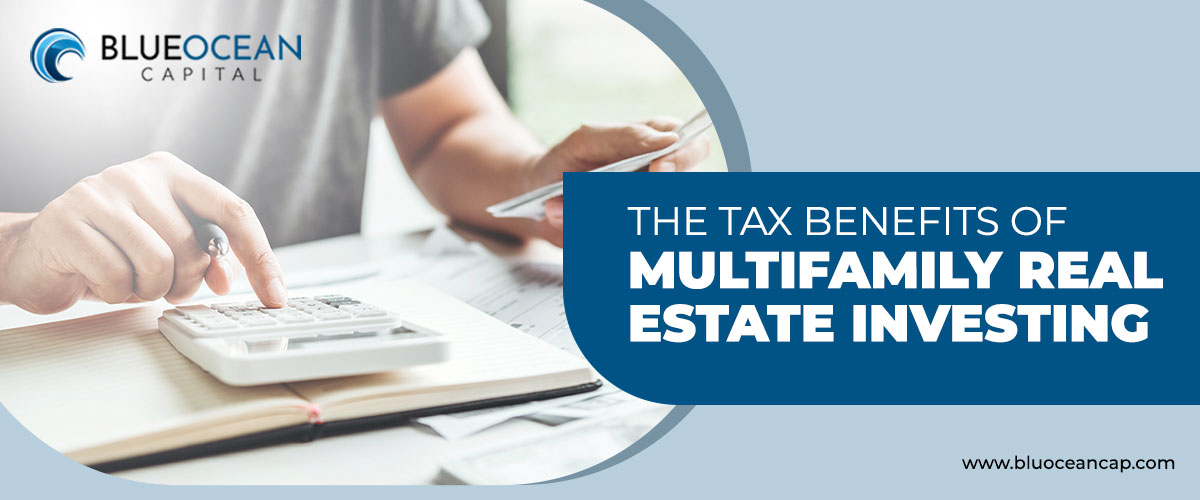
Many passive investors are drawn to real estate syndication for tax advantages, cash flow, capital preservation, and consistent growth prospects. Real estate investing has several significant tax advantages, but the biggest one we’ve noticed so far is probably the substantial deductions.
Being a limited partner in the partnership that owns and controls the commercial real estate asset qualifies you as a “passive” participant, which makes investments in multifamily syndications a “passive” activity. Each investor is entitled to a portion of these deductions based on their proportionate share of ownership in the limited partnership. Due to this, buying multifamily real estate is incredibly tax-efficient.
The following are some of the most significant tax advantages of using a syndicate to invest passively in real estate:
Depreciation
Depreciation is sometimes cited as real estate syndication investment’s most significant tax advantage. This is because it permits the deductibility of the cost of assets that depreciate over time.
Let’s say that over time, the state of residential real estate deteriorates, increasing the expense of upkeep and repairs. These costs are included in your tax calculations and utilized to write off a portion of your income in addition to the property depreciation.
The investor has the chance to pay capital gains tax at a lower rate, thanks to depreciation.
Loss on paper helps offset passive profits from other assets and deduct depreciation. An investor can carry forward losses when passive income rises if they are more significant than passive income.
The capital gains tax rate is Lower.
The profits from a property sale are known as capital gains. Even though these profits are considered income, capital gains are taxed at a lower rate than ordinary income.
Real estate gains realized for a year, or longer are also considered long-term capital gains and are taxed accordingly.
As a result, passive investors benefit from the tax efficiency of income from real estate syndication investments.
Free E-Book – PASSIVE INVESTING BLUEPRINT FOR BUSY PROFESSIONALS IN 2022
1031-Exchange
Real estate investors can postpone paying capital gains taxes because of a tax law feature called 1031-Exchanges. It is referred to as a 1031-exchange. Using a 1031-exchange, a real estate investor can sell real property (rather than personal property) and reinvest the proceeds into another like-kind investment while postponing capital gains tax.
This is especially helpful when an investor has owned a property for a long enough period to exhaust depreciation. Using a 1031-exchange to reinvest the sales proceeds, the investor assumes a lower tax basis in the new asset, which often represents the delayed gain. The investor would theoretically have a different cause that might be depreciated if the newly acquired asset had a higher value than the one sold. Still, it would not be the total cost of the new purchase. Indefinite players of this game can postpone paying taxes while accumulating equity.
Refinancing
Refinancing entails changing an existing credit agreement and substituting a new loan for the existing mortgage. The refinancing application process is very similar to the mortgage application process. The lender will typically need to assess your financial situation to determine your eligibility.
There is a new loan repayment schedule after refinancing. Investors in real estate syndicates stand to gain significantly when all tax advantages and deductions are considered. Investors can benefit from equity growth without selling the property and paying capital gains tax.
Deduction for Mortgage Interest Payments
As you probably already know, most early loan repayments are used to pay the interest on the loan. Tax deductions for these payments are permissible. A rental property’s interest payments can be deducted from taxes like a conventional residential mortgage. This can give you a passive investor significant financial advantages at tax time, especially in the first few years after investing in real estate.
Conclusion
Real estate syndication investing comes with several significant tax advantages. You can learn to benefit from tax advantages from both your earnings and losses when you participate passively as a limited partner in a significant multifamily real estate investment venture through a reputable REI syndicate.
You can significantly lower your yearly income tax payments by being aware of the IRS regulations for reporting your investment property depreciation, capital gains, refinancing, mortgage interest deductions, and losses carried forward. In addition, you may qualify for even more significant tax breaks if you and your tax advisor decide that obtaining Real Estate Professional Status (REPS) is the best option.
